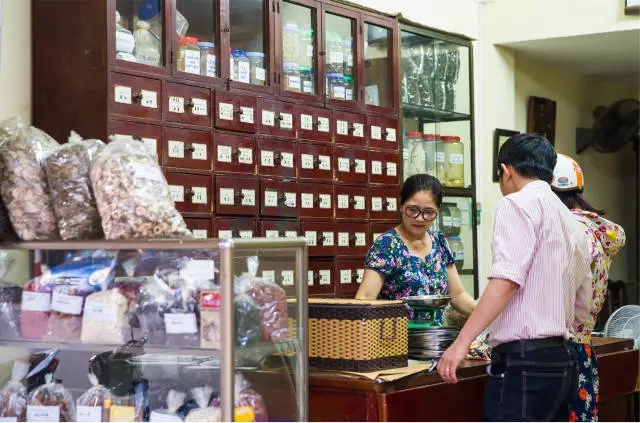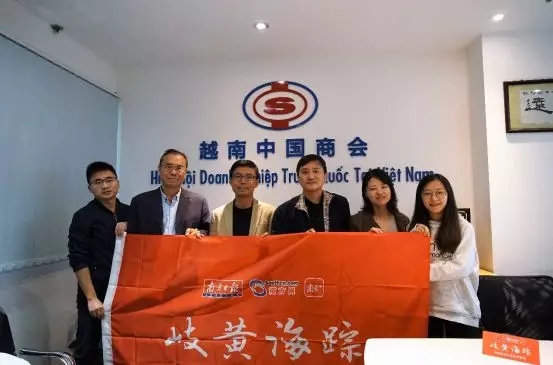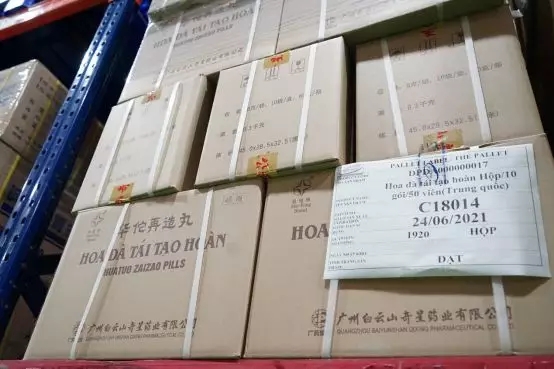Chinese patent medicine gains popularity in Vietnam
2019-01-22 12:59:11 GPHL GPHL
Recently, Nanfang Daily, a mainstream South China newspaper, produced a series of reports on the way in which traditional Chinese medicine (TCM) is being promoted to overseas markets. And one of its reports shed light on how GPHL is planning to expand its TCM market in Vietnam.
The following is an excerpt from the article:
“Every time I go back to Vietnam from China, I will bring some Chinese patent medicines such as Angong Niuhuang Pills for my clients and friends in Vietnam as a gift,” said Lv Jiang (transliteration), the Secretary General of Business Association of China in Vietnam, who frequently travels between China and Vietnam.
Vietnam and China are neighbours, and people in both countries share similarities in lifestyle and culture. In Vietnam, people think highly of Chinese medicine when it comes to curing diseases and improving health. They are accustomed to using medicinal herbs to take care of their body, including using medicinal alcohol and drinking herbal tea.
No doubt, traditional Chinese medicine is well received in Vietnam. However, more TCM products should be introduced to the local market in order to give full play to this advantage, and serve local people.
In downtown Hanoi, Lan Ong Street is home to a dozen Chinese pharmacies, selling commonly used Chinese medicinal ingredients, such as pseudo-ginseng, rehmannia, angelica, and medlar.

“Most of the herbs sold at Lan Ong Street are imported from China through border trade,” Lv Jiang explained, “TCM departments can be found in the majority of hospitals in Vietnam.”
“Along with the economic and social development and the improvement of living standards, there is greater and greater demand for traditional Chinese medicine,” Lv Jiang said. Easy-to-use Chinese patent medicines with definite therapeutic effects enjoy great popularity among the people, including Angong Niuhuang Pills and Liu Wei Di Huang Pills.
“Angong Niuhuang Pills are especially favoured by the common people. Patients with cardiovascular and cerebrovascular diseases always keep a few to prevent and treat convulsions, coma and delirium,” Lv Jiang emphasized.

According to statistics, about 60% of the Chinese patent medicines in Vietnam’s markets are imported from China.
East Asia Pharmaceutical Co., Ltd. (transliteration) was one of the first Vietnamese companies to engage in the trade of TCM ingredients and Chinese patent medicines.
According to the company’s chairman Ding Wenlu (transliteration), the company has established cooperation with many well-known TCM enterprises in China after 20 years’ development, including Beijing Tongrentang Co., Ltd. and GPHL’s Guangzhou Baiyunshan Qixing Pharmaceutical Co., Ltd. It has imported over a dozen famous Chinese patent medicines such as Angong Niuhuang Pills and Huatuo Zaizao Pills, and become the exclusive agent of these brands in Vietnam as well.
Ding explained that his company is among the top five TCM trading companies in Vietnam. “Guangzhou Baiyunshan Qixing Pharmaceutical Co., Ltd. is our long-term partner. We sell around 500,000 boxes of Qixing’s Huatuo Zaizao Pills every year, and we recently completed the registration of Wuji Baifeng Pills in Vietnam and will soon bring them to the market.” Ding is full of confidence for the future development of Chinese patent medicine in Vietnam.

All the Chinese patent medicines sold by Ding’s company have been included in the Vietnamese health insurance directory and are allowed to be sold to hospitals. This is a clear demonstration that Chinese patent medicine has won the approval of Vietnamese government sectors and accepted by the population as a whole.
The Director General of the Agency for Traditional Medicine Administration of the Ministry of Health in Vietnam pointed out that the Vietnamese government attaches great importance to the development of traditional Chinese medicine and hopes to see more exchange and cooperations with Chinese enterprises to promote the development of TCM and health care services in Vietnam.
Reported by Monica Liu
Edited by Simon Haywood

